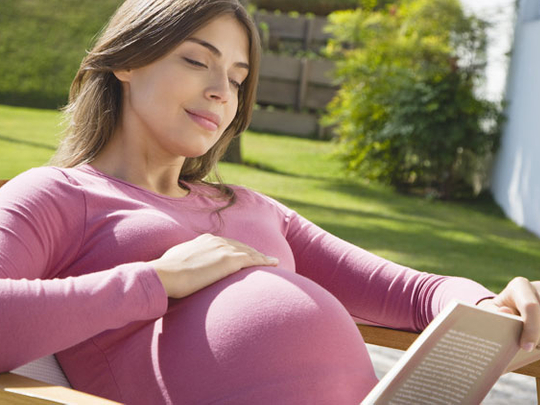
Dubai: Women who continue to work during the late stages of pregnancy are at a risk comparable to that of smoking while pregnant, according to new research being weighed by UAE health professionals.
Based upon data in a new international study, work pressure, especially after the eighth month of pregnancy, can cause harm to both mother and baby, gynaecologists in Dubai have warned.
The cautions are being issued following the release of a new study — A dynamic structural model of birth weight — conducted by the University of Essex that drew on data from three major studies, two in the United Kingdom and one in the United States to analyse how smoking compromises birth weight, causing a reduction of between 140 to 160 grams.
The study stated that women who worked into their ninth month of pregnancy also had babies with compromised birth weight, around a quarter kilo lighter than those who stopped work between six and eight months. Babies with low birth weight are known to be at an increased risk for serious health problems and disabilities.
To access the risks and discuss preventive measures Gulf News sought medical opinions.
Dr Keya R. Shivadey, specialist gynaecologist, Aster Plus Medical Centre, Business Bay Clinic, Dubai said a woman body’s goes through a challenging phase during the last stage of pregnancy, affecting her physical, mental and emotional state. “Stressors should be avoided. Stress can lead to hypertension, resulting in various conditions that could endanger the life of mother and baby. To support a healthy baby, the placenta [organ that links the blood supplies of mother and baby] needs a good supply of blood. Any cause that prevents the placenta from getting enough [blood], can lead to complications,” she said.
She explained that women who have work stress tend to have high blood pressure. In pregnant women this can be fatal especially when associated with conditions like preeclampsia (hypertension in pregnancy); oedema (fluid retention in the body); abruptio placentae (separation of the placenta from the uterus; IUGR (Intrauterine Growth Restriction or poor growth of a baby); gestational diabetes; and pre-term babies.
Dr Rehana Moin, specialist obstetrician and gynaecologist at Canadian Specialist Hospital (CSH), Dubai, advised that work-related pressures should be avoided and measures should be in place to better manage stress during the last stage of pregnancy.
“If a woman cannot take time off from work, she should avoid taking up any additional responsibility. Special attention should be given to fluid and food intake; use of supportive pillows for the back while sitting; adequate rest and exercise; and regular medication,” she said.












